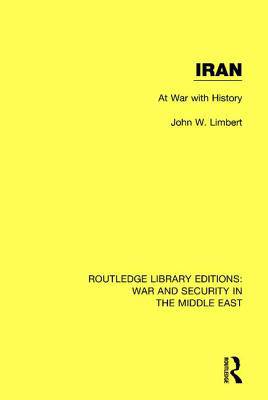
- Afhalen na 1 uur in een winkel met voorraad
- Gratis thuislevering in België
- Ruim aanbod met 7 miljoen producten
- Afhalen na 1 uur in een winkel met voorraad
- Gratis thuislevering in België
- Ruim aanbod met 7 miljoen producten
Omschrijving
Iran is the only Middle Eastern state to have preserved its national identity through the upheavals of Arab, Turkish and Mongol invasions. It is heir to the richest culture in the Middle East: a culture that extends far beyond the state's political boundaries. This book, first published in 1987, traces elements of continuity in Iranian society from pre-Islamic times to the turmoil of the Islamic Republic. The author discusses the persistence of religion as a dominant force in Iran's politics and society; the attraction of unorthodox doctrines such as Mazdakism, Baha'ism, and revolutionary Shi'ism; the tradition of strong, charismatic leadership; and the constant problem of ruling peoples of diverse tribal, religious and linguistic affiliations. He finds explanations for recent political changes in conditions peculiarly Iranian and examines the emerging post-revolutionary society along with some of its new institutions, including the revolutionary guards, the assembly, the neighbourhood committees, and the Friday prayer leaders.
Specificaties
Betrokkenen
- Auteur(s):
- Uitgeverij:
Inhoud
- Aantal bladzijden:
- 204
- Taal:
- Engels
- Reeks:
Eigenschappen
- Productcode (EAN):
- 9781138647596
- Verschijningsdatum:
- 11/07/2016
- Uitvoering:
- Hardcover
- Formaat:
- Genaaid
- Afmetingen:
- 156 mm x 233 mm
- Gewicht:
- 430 g

Alleen bij Standaard Boekhandel
Beoordelingen
We publiceren alleen reviews die voldoen aan de voorwaarden voor reviews. Bekijk onze voorwaarden voor reviews.












